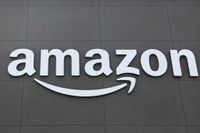The long-simmering battle between Amazon and the Federal Trade Commission (FTC) has erupted into a high-stakes trial in Seattle, where the e-commerce giant stands accused of deceiving millions of customers into enrolling in its Prime membership program and making it exceptionally difficult for them to cancel. The trial, which began with jury selection on Monday, September 22, 2025, and opening arguments the following day, is expected to last about a month. The outcome could have sweeping implications for how not only Amazon, but also other subscription-based businesses, design their online sign-up and cancellation processes.
Amazon Prime, launched in 2005, has ballooned into one of the world’s most popular paid subscription services, boasting more than 200 million members globally. For $139 a year (or $14.99 per month), members enjoy perks like free shipping and access to streaming content. The program has become a financial juggernaut for Amazon, generating more than $44 billion in subscription revenue in 2024 alone, according to Tom’s Guide. Prime Day sales, a major annual event, topped $14 billion that same year.
But according to the FTC, those impressive numbers have come at a cost to consumers. The agency alleges that Amazon used so-called “dark patterns”—deceptive website design tricks—to lure tens of millions of people into Prime memberships without their clear consent. Regulators say that, at checkout, customers were presented with a large yellow button promising “FREE Two-Day Shipping,” but the button also enrolled them in a recurring Prime subscription. The opt-out, the FTC claims, was hidden in a much smaller link, making it easy to miss. As the FTC put it in a 2023 press release, “Amazon tricked and trapped people into recurring subscriptions without their consent, not only frustrating users but also costing them significant money.”
Once enrolled, escaping Prime wasn’t easy, either. The FTC’s complaint describes a “labyrinthian mechanism” for cancellation, internally dubbed “the Iliad” by Amazon staff—a nod to Homer’s epic poem about the Trojan War, famous for its trickery. Customers seeking to cancel reportedly had to navigate four web pages, execute six clicks, and choose from 15 different options. The process sometimes included banner messages thanking users for their loyalty and encouraging them to reconsider, followed by additional pages before the cancellation could be finalized. According to the FTC, this design led some people to believe they had successfully cancelled when, in fact, they had not.
The FTC’s case is grounded in two key statutes: Section 5 of the FTC Act, which prohibits “unfair” business practices, and the Restore Online Shoppers’ Confidence Act, which requires companies to clearly disclose all terms before collecting billing information, obtain explicit consent for recurring charges, and provide an easy way to cancel. U.S. District Court Judge John Chun delivered an early blow to Amazon, ruling on September 16, 2025, that the company and two senior executives—Prime boss Jamil Ghani and Neil Lindsay, a senior vice president—had violated the Restore Online Shoppers’ Confidence Act by collecting billing information before properly disclosing the terms of Prime. Chun also found that these executives could be held individually liable if the jury sides with the FTC, due to the level of oversight they maintained over the Prime enrollment and cancellation process. Russell Grandinetti, another senior executive named in the suit, was deemed to have less involvement.
Amazon, for its part, has fiercely denied any wrongdoing. The company insists that its Prime sign-up and cancellation processes are “clear and simple,” with all terms transparently disclosed. “Occasional customer frustrations and mistakes are inevitable—especially for a program as popular as Amazon Prime,” the company argued in a recent court filing. “Evidence that a small percentage of customers misunderstood Prime enrollment or cancellation does not prove that Amazon violated the law.” Amazon spokesperson Maxine Tagay told CNBC, “The bottom line is that neither Amazon nor the individual defendants did anything wrong—we remain confident that the facts will show these executives acted properly and we always put customers first.”
Still, the FTC points to internal Amazon communications that suggest the company was well aware of the issues. In a 2020 email, Amazon’s retail chief Doug Herrington described “subscription driving” as a “shady” practice and jokingly referred to Jeff Bezos as the company’s “chief dark arts officer.” According to court filings, Amazon employees internally described the confusing sign-up process as an “unspoken cancer” because making it clearer would likely reduce the number of new subscribers.
The case is not happening in a vacuum. The FTC’s crackdown on dark patterns began in earnest in 2022, targeting a range of industries. In April, the agency filed a similar lawsuit against Uber, alleging deceptive billing and cancellation practices tied to its Uber One subscription service. Uber has denied the claims. Earlier this year, the FTC reached settlements with online dating service Match and online education company Chegg over allegations of hard-to-cancel subscriptions. A 2024 study by the International Consumer Protection and Enforcement Network found that 76% of subscription-based websites and apps used dark patterns to retain customers, most often by hiding or delaying important information.
Globally, governments are taking notice. The European Union is considering the Digital Fairness Act, which could go into effect in 2027 and would target similar deceptive practices. Meanwhile, in the U.S., a Biden-era FTC proposal dubbed “click to cancel”—which would have required companies to make cancellation as simple as a single click—was rescinded by the Trump administration. Even so, the current case against Amazon proceeds under existing laws, and a verdict in favor of the FTC could force sweeping changes across the subscription economy.
As the trial unfolds, the stakes are high for Amazon. The company is already facing a separate FTC lawsuit alleging illegal monopoly practices, with that trial scheduled for February 2027. The outcome of the Prime case could set a precedent, not just for Amazon, but for the entire tech industry and the many businesses that have built their fortunes on recurring subscriptions.
For now, all eyes are on Seattle’s federal courthouse, where a jury will decide whether Amazon crossed the line from clever marketing into outright deception. Whatever the verdict, the case has already sparked a broader debate about transparency, consumer rights, and the sometimes murky tactics companies use to keep customers coming back.


